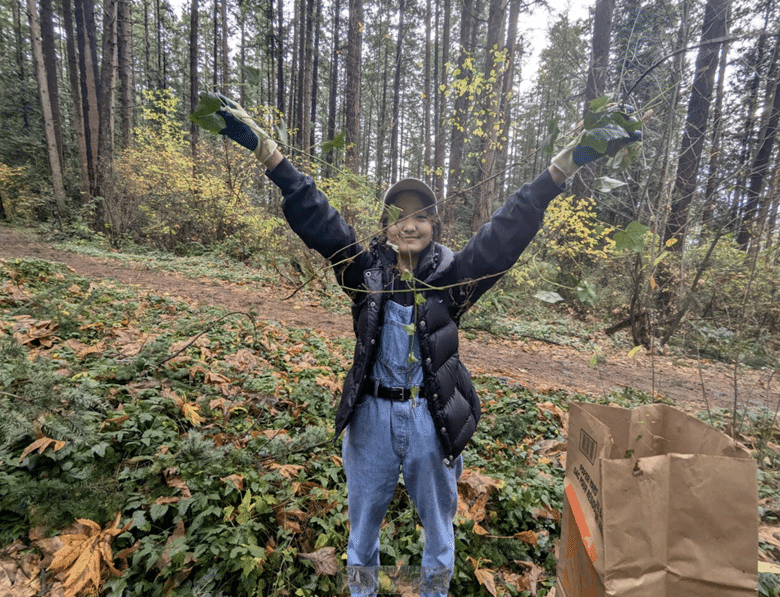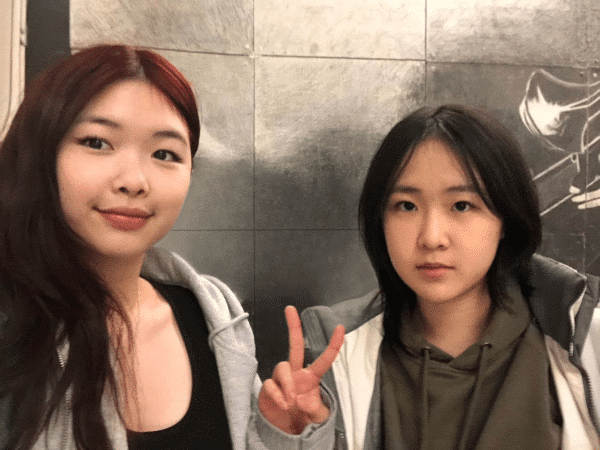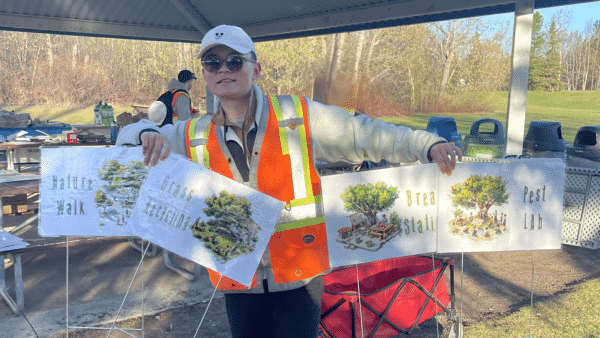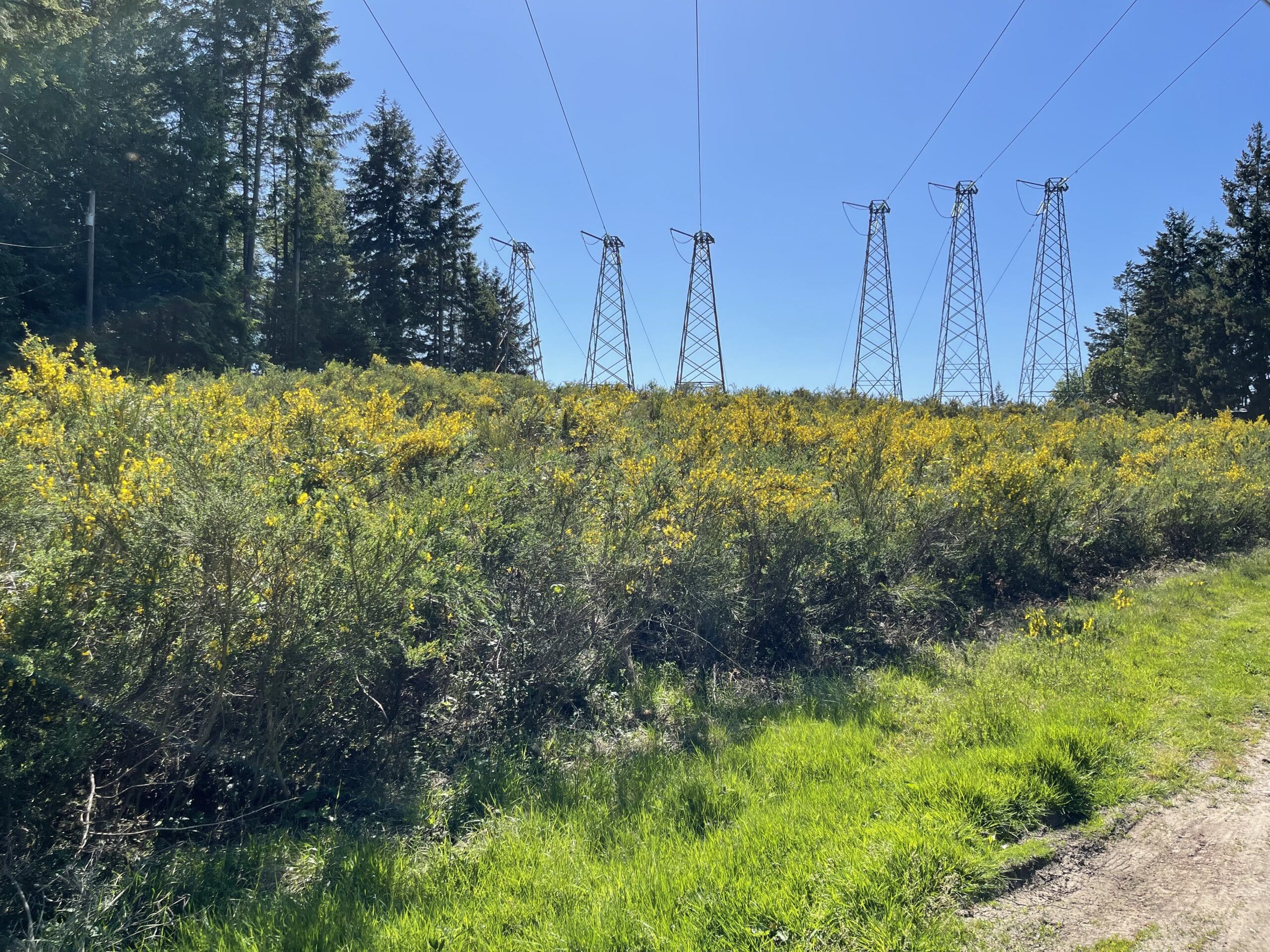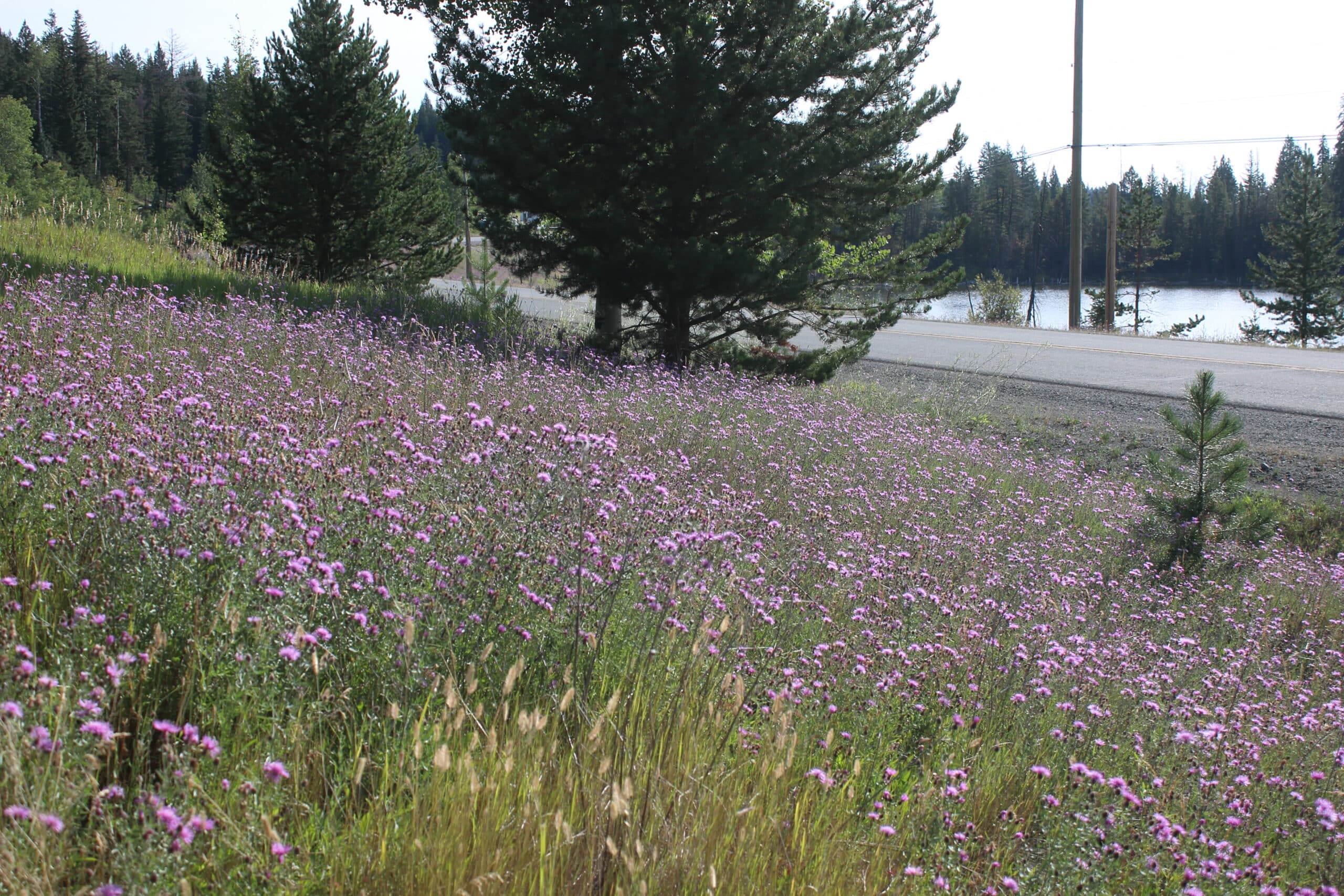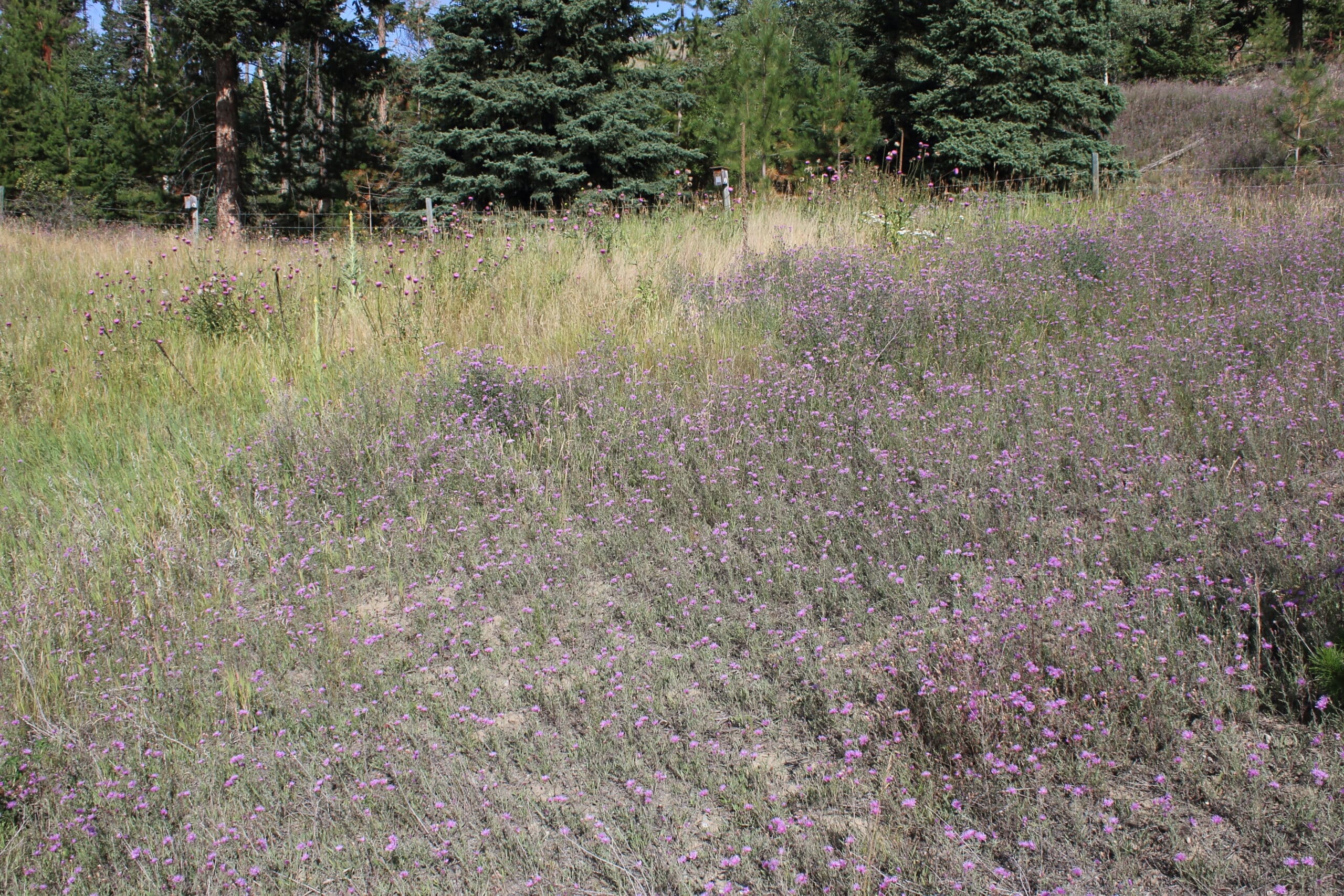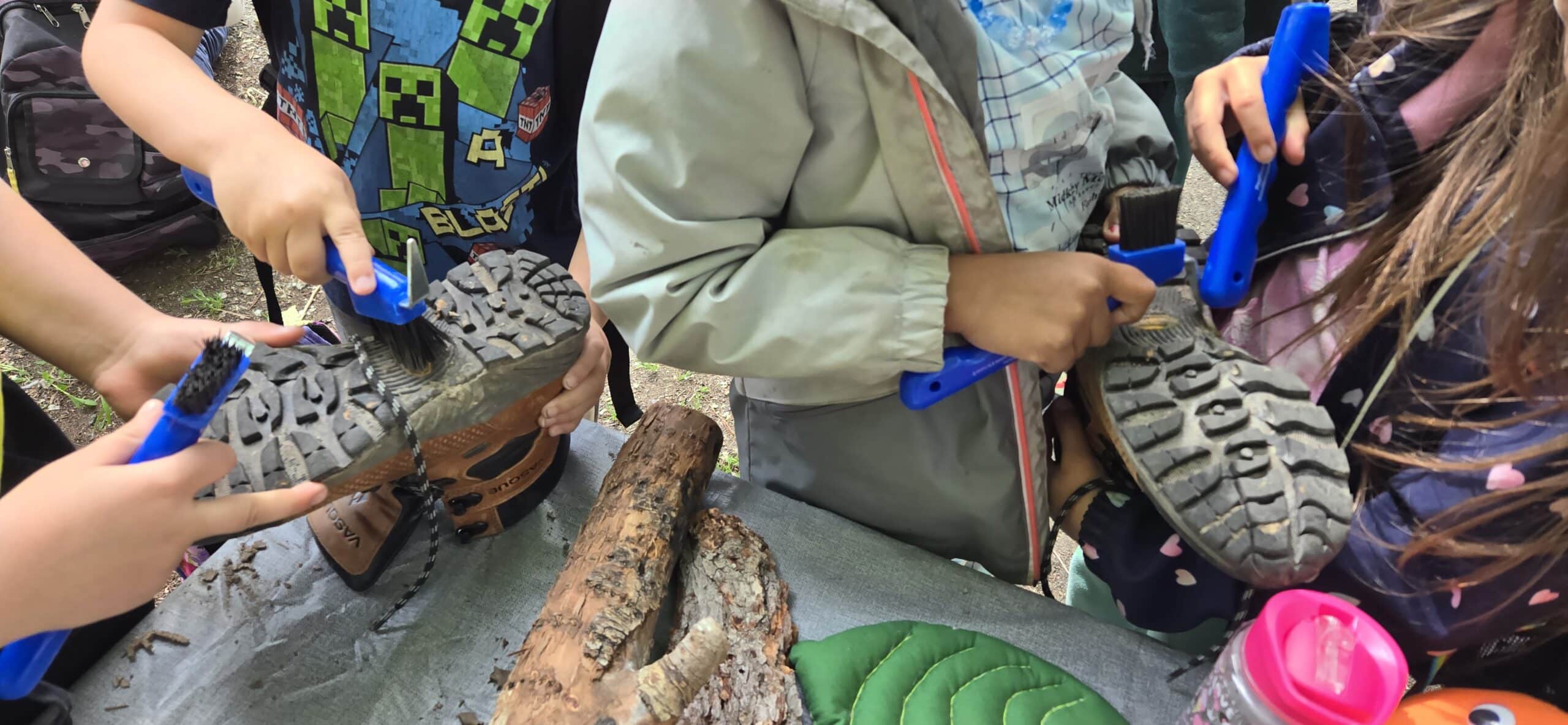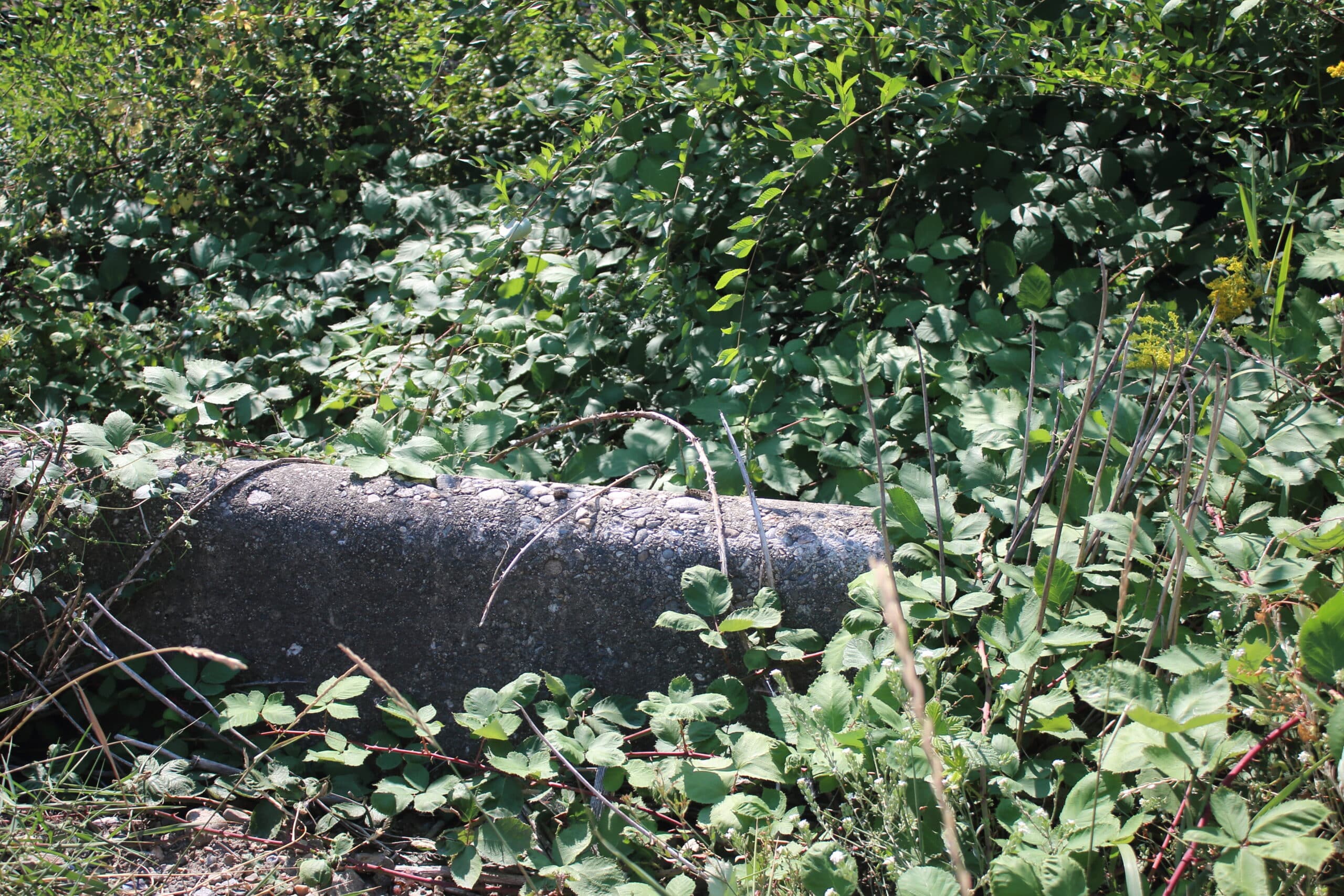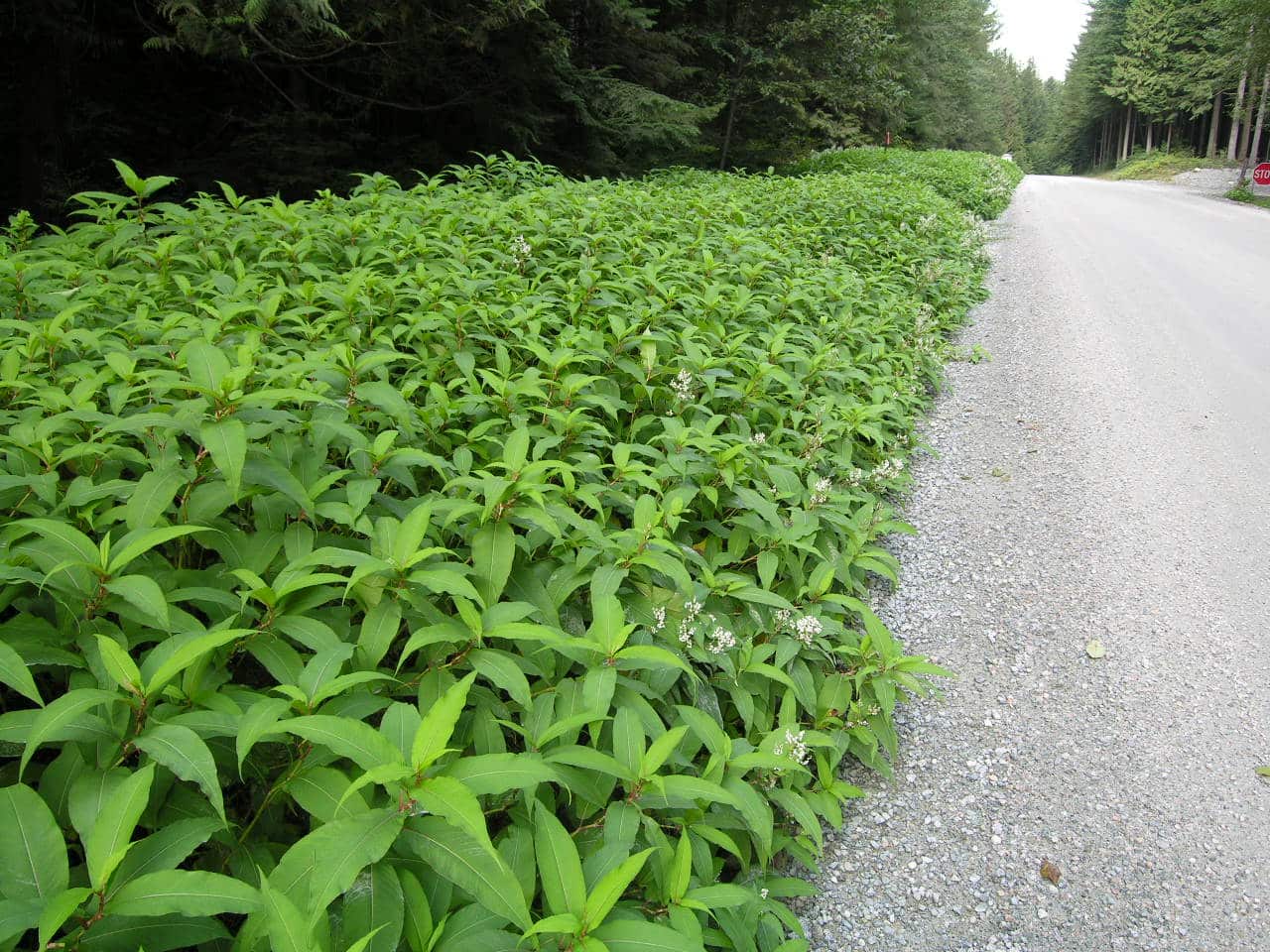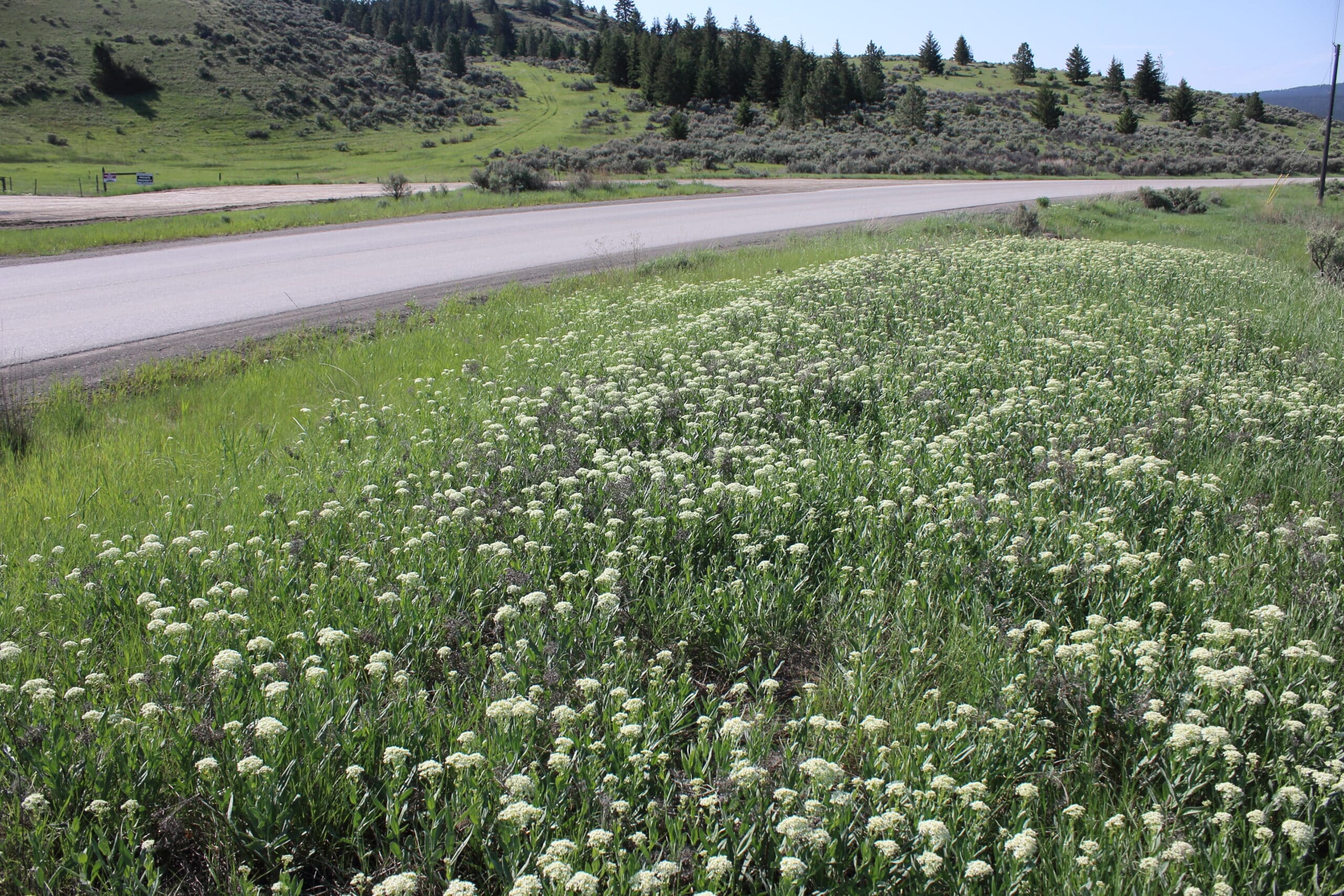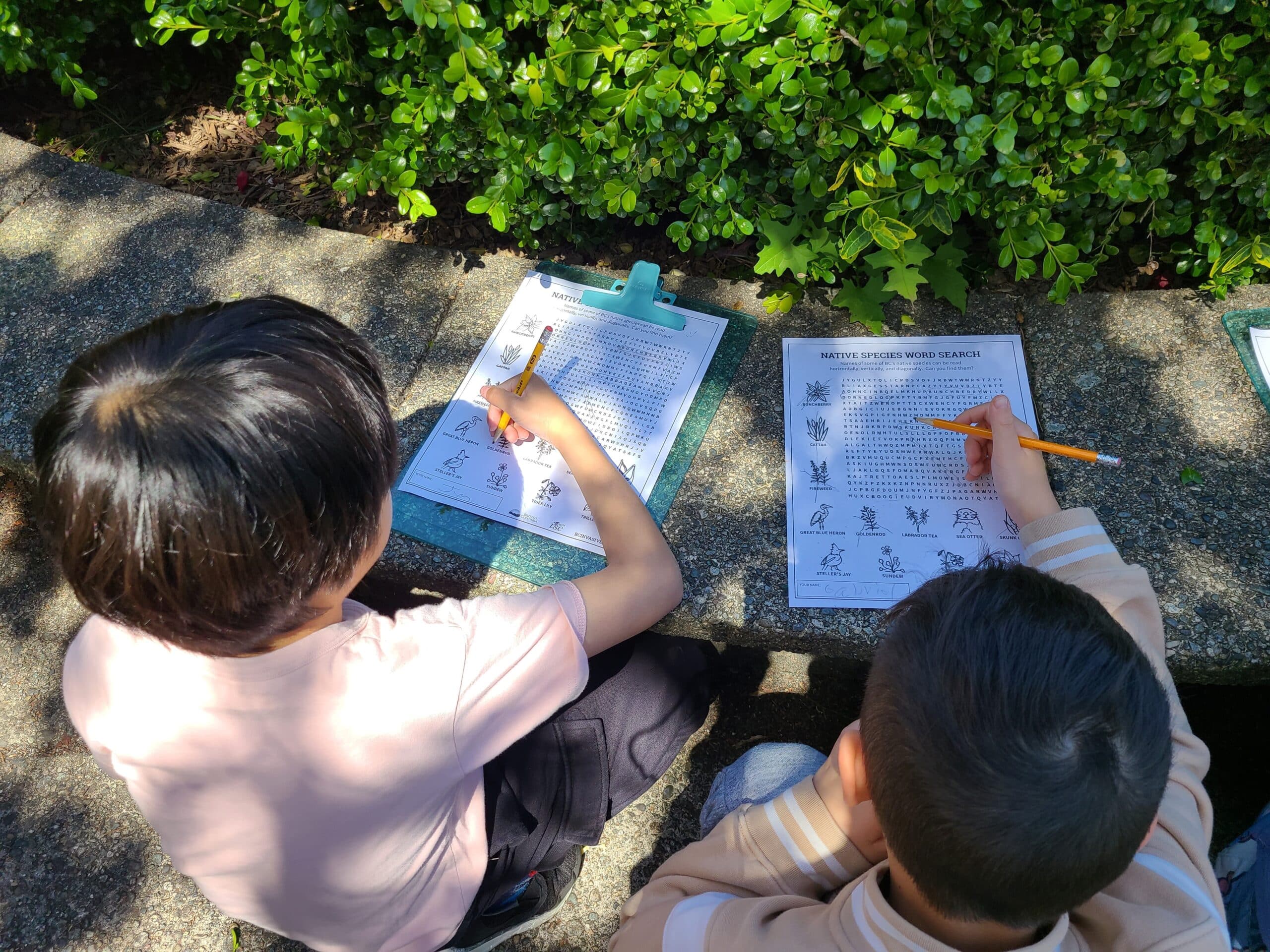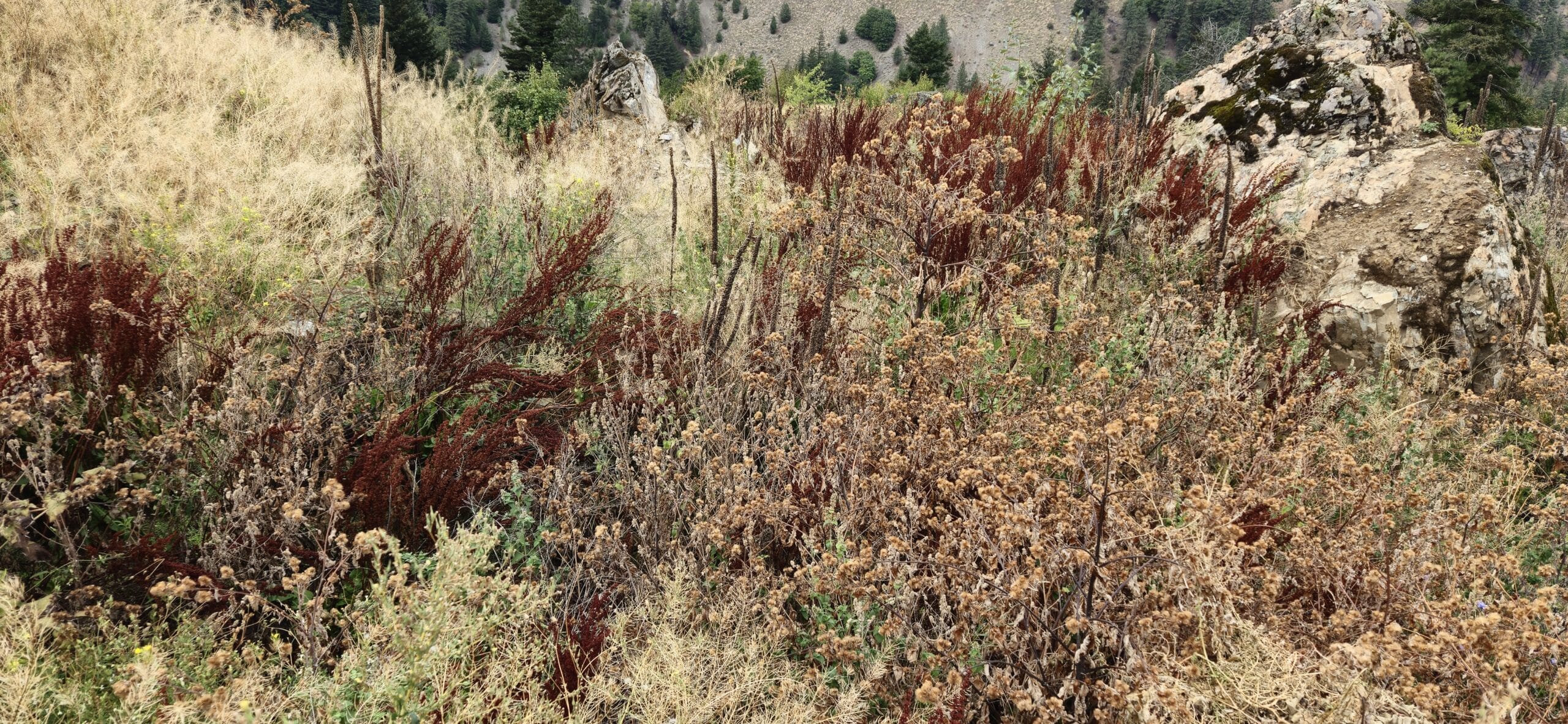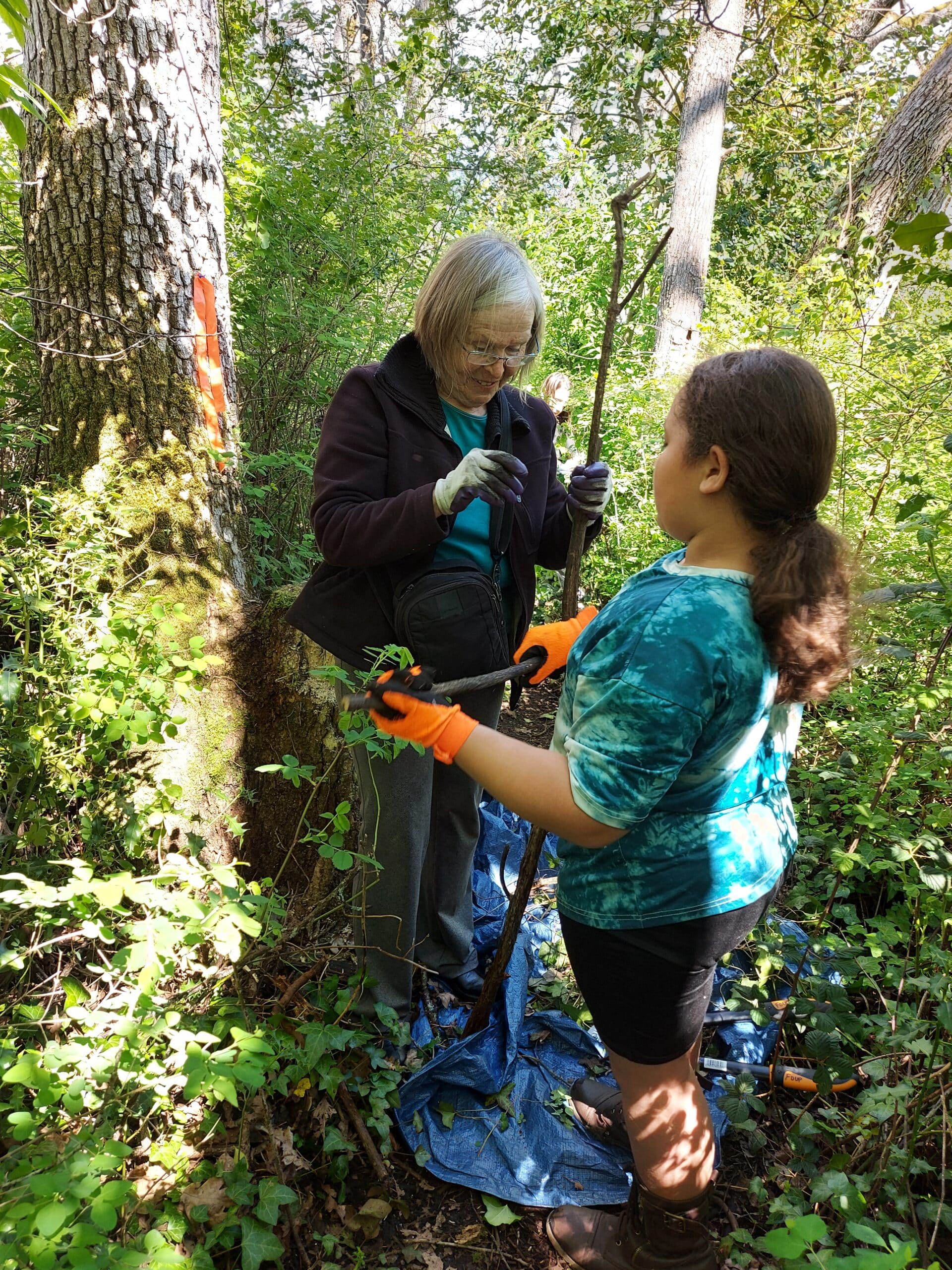By Janey He and Edith Liu /Edited by Melanie Apps /January 9, 2025
English ivy, considered one of the most invasive plants along the coast of southwestern B.C., is a sneaky intruder that grows rapidly on many landscapes, killing native plants in the process. It can form a dense mesh on the ground and even climb onto trees and buildings.
Janey and Edith, two local youth from Delta, observed a significant increase in English ivy and Himalayan blackberry plants over the years in North Delta’s beautiful Watershed Park. This spurred their interest in restoring the biodiversity of this local park. While researching common invasive species that thrive in B.C.’s rich ecosystems, Janey and Edith learned that invasive species may look like native species, but their lack of predators allows them to flourish. For example, the invasive Himalayan blackberry species and the native salmonberry plants are visually similar with light green leaves containing toothed edges that branch from its stem. However, there are slight nuances that differ between the two species – Himalayan blackberry leaves grow in groups of five instead of three and the thorns on its branches are more densely packed. To the untrained eye, invasive species blend right in with native species.
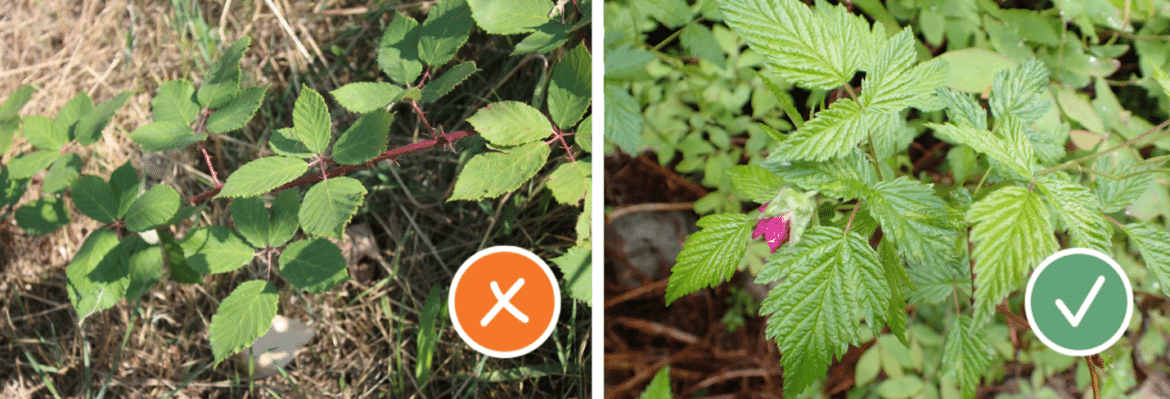
Janey and Edith decided to take action, to ensure community enjoyment of Watershed Park for years to come. The goal? To remove English ivy growing on the ground and trees and protect native biodiversity. In November, with permission and some weed pulling equipment generously lent by the City of Delta, five volunteers gathered in Watershed Park to remove English ivy. As the crew stepped into the park, they were surprised by the dense carpet of concentrated English ivy growth which extended up the trees. The main English ivy stems were thick, some of which resembled small trees! They carefully removed the plants and their roots to prevent future growth, clearing out four large bags of English ivy in two hours.
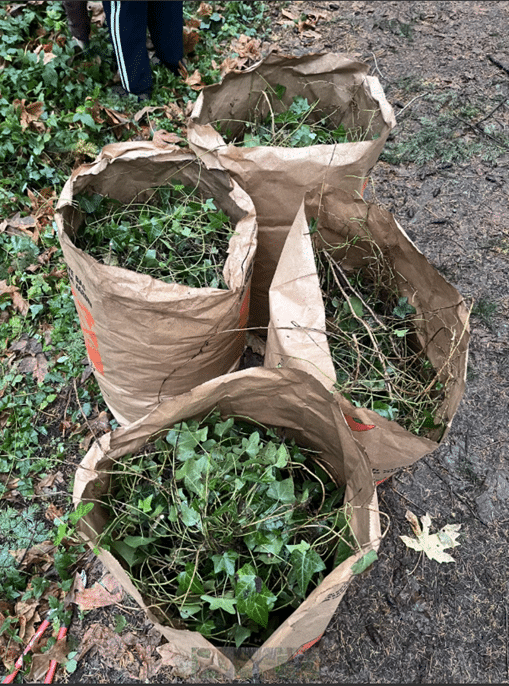
Janey and Edith share the following message: Thank you everyone, for making this wonderful experience happen! Your time and effort make a difference in protecting B.C.’s local, natural environment. If you missed this event and want to help, there are still plenty of ways you can contribute. You can learn invasive plant identification, grow native plants, or join our next event in spring 2025! Anyone interested in joining may sign up here to receive notifications on our next planned events. We will continue to remove English ivy and hope to eventually tackle Himalayan blackberry plants in the park as well!
Janey is a second-year science student at the University of British Columbia studying Microbiology and Immunology. She has a passion for sustainability and protecting B.C.’s local wildlife.
Edith is a second-year student at the University of British Columbia studying Psychology. As a volunteer, she wants to protect B.C.’s native ecosystem and foster a stronger connection between people and nature.
Melanie is a Youth Coordinator for the Lower Mainland region with ISCBC. She is passionate about community-focused environmental stewardship and helps lead a restoration project in New Westminster in her free time. You can reach Melanie at mapps@bcinvasives.ca
Share


